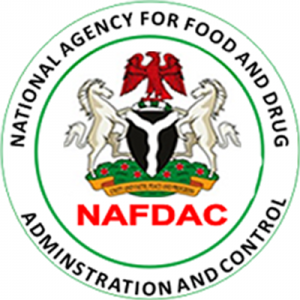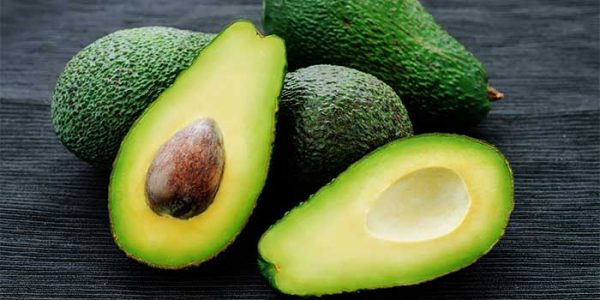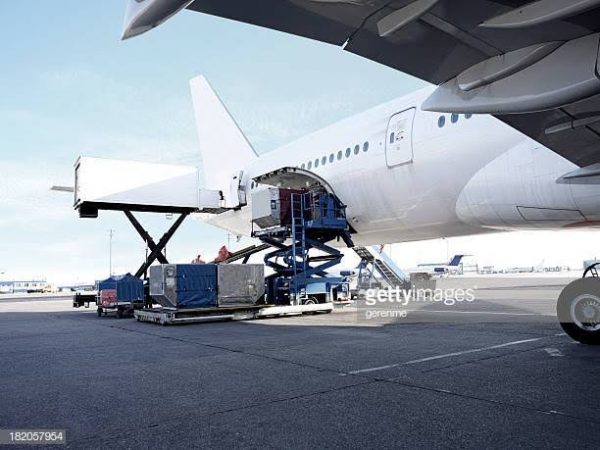The Requirements For Importing Live Aquatic Products
 For the importation of live aquatic products namely- fish, crustaceans, molluscs, sea weeds, echinoderms, water etc. The consignor or his agent must diligently satisfy all quarantine regulations on examination and approval procedures before signing any trade contract, and must obtain a QUARANTINE PERMIT OF ENTRY for aquatic products before loading of consignment for freighting into Nigeria.
For the importation of live aquatic products namely- fish, crustaceans, molluscs, sea weeds, echinoderms, water etc. The consignor or his agent must diligently satisfy all quarantine regulations on examination and approval procedures before signing any trade contract, and must obtain a QUARANTINE PERMIT OF ENTRY for aquatic products before loading of consignment for freighting into Nigeria.
Without a PERMIT OF ENTRY, no aquatic product would be allowed into the country.
The PERMIT OF ENTRY is required for the release of the consignment to its consignee in Nigeria. Without it, the consignment would be rejected for failure of Quarantine Integrity (QuInt).
- General Administration:
General administration procedure is a due diligent practice to reduce pre-entry delay in processing of document.
- Application for Permit:
In compliance to regulation of the Sea Fisheries Act 1992 and the NAQS/FDF Memorandum of Understanding of 7/12/2012, an application for importation of aquatic product must be made to:
The Head of Department, Nigeria Agricultural Quarantine Service, Abuja. (Aquatic Resources Quarantine Department).
The application must indicate:
- The name of the product to be imported;
- The country of origin of the product;
iii. Quantity of the product to be imported;
- Name of company from which product is sourced;
- Payment of Fees;
A reviewable fee of N 10,000 is chargeable for import of live aquatic products. Payment is made into NAQS account in bank drafts.
- Filing of Document:
It is assumed that arrangements for importation of products must have been concluded prior to an application for import permit. As a result, the following documents are required as attachments to the application for import permit:
- EU certification of origin of products in line with Directive 91/493/EEC;
- A valid International Health Certificate for the fish issued not earlier than 10 days before date of arrival in Nigeria;
iii. Diary or history of the fish being imported;
- Disinfectant/biologics/chemical treatment administered along production/processing line;
- Radio- active free certificate.
- Post – Boarder Action Plan.
A comprehensive post border action to curtail risk that is associated with new exotic species must be presented to NAQS, discussed and agreed upon before permit of entry is granted. This is an international Protocol for listing of countries as quarantine compliance to ICES (2005), FAO (2005) and OIC (2006).
Components of Post – border Action Plan are as follows:
- Determination of the Acceptable Level Of Risk (ALOR)
- Biology of species; Prevalent disease/pests;
- Life stage of commodity;
iii. Procedures/sanitation of source;
- Strategies for appropriate protection – Appropriate Level Of Protection (ALOP).
- Restriction plan
- Facility treatment/disinfection plan
iii. Monitoring programmes
- Sterilization of effluent water and disposal plan
- Disposal of waste water should conform to any existing laws covering the jurisdiction of the locality where the commodity will be transferred or introduced.
- Contingency planning in case of escape of animals or pathogens.
- Risk analysis programmes
- Co – habitation treatment
- Induced stress treatment
III. Micro – biological assessments of effluent water.
- Competence of management personnel
- Plan of internal quarantine audit (period/frequency)
- Plan of external quarantine audit (period/frequency)
- Permit of Entry:
Certain documents necessary for the final departure/or freighting of aquatic products may be delayed due to logistics. Whenever the documents are made available and are authenticated, the importer would on request be granted a PERMIT OF ENTRY at no extra cost.
The request for permit of entry should contain such details as:
- The carrier name;
- Port of departure;
iii. Port of arrival;
- Expected time of arrival in Nigeria;
- (Packaging details- number and “boxing”)
Permit of Entry must not be given earlier than 24 hours before Time of Departure from country of origin. This is to reduce hazards due to increase in ammonia levels, reduction in tranquilizer effect and stress-causing conditions for the animals.
Permit of Entry is best transmitted through electronic mails to enable loading of consignment take place immediately. Such mails must be acknowledged prior to loading by electronic mail also.
- TECHNICAL ADMINISTRATION:
- Pre-Arrival:-
All imports of aquatic product must be subjected to strict quarantine regulations in accordance with the policies of the Federal Republic of Nigeria on food- safety, bio-security, Agricultural Transformation Agenda, international protocols on risk control, and quarantining of foreign aquatic animals.
- Inspection of Quarantine Approved Places (QAPs)
The readiness of quarantine approved place (facility) for the immediate reception and acclimation of the import fish must be confirmed by an Aquatic Quarantine (fisheries) Inspector less than 24 hours before the arrival of the commodity.
- Purchase of treatment/disease control and quarantine management biologics for the quarantining of the fish. Biologics should be in place at least 48 hours before arrival of commodity.
iii. SOP’s for ALOP audit apply.
- Facility Status Clearance (FSC) must be issued after ALOP audit to the Importer and must be attached to the application for a Permit of Entry.
NOTE: (Arrangement and cost of i and ii above are borne by the importer)
- Pre-Entry (Arrival)
- Inspection of Quarantine Seal
- Observation
- physical activities of fish
- mortalities
- Clearness of current water
iii. Rapid Test
- Temperature
- PH value
- Dissolved gases
- Facility Status Clearance (FSC) must be issued after ALOP audit to the importer and must be attached to this application for a Permit of Entry
- Sample Collection
- Collection of fish sample at a statistically acceptable ratio dependent upon size (number and weight) per container.
- Collection of samples of current water.
III. Special feed (antibacterial/ antiviral).
Feed usually must accompany every imported live fish at a quantity that would sustain the fish for at least 21 days. Feed sample are also collected for analysis and valuation for bacterial status.
- Quarantining
About one hour before arrival of the product, the Franc-Greco quarantine tank should be activated.
- Introduction of sample (current water not inclusive) into the quarantine tank after due acclimation.
- Monitoring of the sample fish is carried out for at least 14 days in line with international aquatic animals quarantine procedures and best practice.
- Laboratory Analysis
- Current water
Temperature, pH, Ammonia/nitrite, Carbon gases, Hardness, Salinity, Microbiology
- Feed
Microbiology, Feed content (protein content analysis)
- Quarantine Integrity Certificate (Biosecurity Clearance Certificate)
At the end of quarantining:
- Quarantine integrity certificate is issued if the quarantine observation and laboratory results are satisfactory.
- Quarantining may be extended if there is suspicion of any disease yet to be manifested by the commodity.
NOTE:
- Logistics for sample quarantining is borne by the importer if it is done at a location of his choice.
- Costs of biologics and extra feeds for the treatment and management of the import fish is borne by the importer.
- No fish under quarantine management must be released or taken away for transfer or introduction into an aquaculture system or the wild. This is a quarantine offence under the Fisheries Quality Assurance Act.
- NAQS will not be responsible for any losses or mortality of product/commodity due to delay of correct information, negligence or mismanagement of consignment of live fish by the importer or his agent.
- Except for issuances of Quarantine Integrity Certificate, NAQS is not obligated to release samples of fish collected for quarantining and analysis, or account for them.








